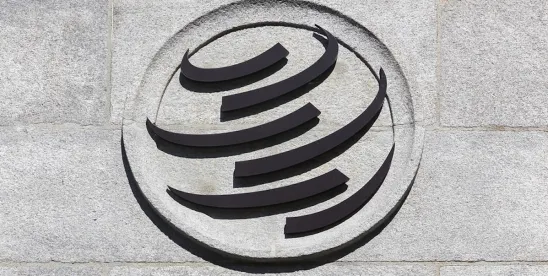After five years of negotiations, 80 member countries of the World Trade Organization (WTO) reached an historic result on cross-border e-commerce, agreeing on a draft of common guidelines and rules applicable to global e-commerce operations. Certain countries, including the United States, are not yet on board.
This initiative, made public July 26, 2024, seeks to establish standards to facilitate the flow of goods and services between countries, promoting cooperation among authorities and seeking to reduce barriers for a commercial modality that has grown exponentially in recent years.
As a result of negotiations that involved more than 90 countries which, according to the WTO, represent 90% of global trade, the organization published a “stabilized” text, which must still reach a general consensus before entering the operational phase. The main points of the agreement include the following:
Enabling Electronic Commerce
WTO member countries would agree to maintain legal frameworks aligned with the principles of the 1996 UNCITRAL Model Law on Electronic Commerce, which guarantees equal treatment between electronic and paper-based information, promoting efficiency in international trade.
According to the draft, the countries would agree to recognize the legal effects, legal validity, or enforceability of contracts or documents that have been executed through electronic means, thereby guaranteeing their legal effect, equivalent to that of those executed in traditional formats.
The member countries would commit to avoiding unnecessary regulatory burdens and to promoting continuous improvement in e-commerce regulation, seeking the recognition and adoption of electronic transferable documents, definition of key concepts such as authentication and electronic signature, and promotion of the interoperability and recognition of electronic signatures between authorities of different jurisdictions.
Paperless Trade
The agreement promotes the transition to a paperless cross-border trade environment by encouraging countries to eliminate physical forms and documents in customs and trade processes and to replace them with electronic, data-based documents. It focuses on international cooperation to promote the adoption of electronic documentation in foreign trade.
The agreement also calls for countries’ electronic platforms for foreign trade operations, known as single windows, to allow the advance submission of documents to facilitate processing before goods arrive in their territories, guaranteeing the protection and confidentiality of data.
Electronic Payments and Invoicing
Due to the growth in the volume of electronic transfers to settle monetary obligations stemming from international transactions, WTO members also seek to establish common ground to address this phenomenon, seeking secure, efficient, accessible, and competitive payments based on international standards, as well as promote interoperability in electronic payment services.
Consumer Protection and Cybersecurity
Given that the exponential growth of e-commerce has led to an increase in illegal and misleading activities that put consumers at risk, the agreement defines “misleading commercial activities” as those that may mislead or defraud in relation to the characteristics, prices, suitability, quantity, or origin of goods or services. To combat such risks, countries would commit to adopting measures to ensure fair treatment of consumers and to ensure that protection in e-commerce is equivalent to that offered in other traditional modes of commerce.
In addition, the agreement would compel states to promote access to remedy mechanisms for consumers in cross-border transactions, to limit unsolicited commercial emails, and to effectively protect personal data. Regarding cybersecurity, the countries agreed to develop national incident response capabilities and collaborate in identifying and mitigating cyber threats.
Conclusion
WTO members must still reach consensus and vote on the agreement’s content and scope. The WTO has made the text public on behalf of the participating countries, with the exception of certain states such as Brazil, the United States, Colombia, Indonesia, and Turkey, all of which are important players in the international trade arena. Therefore, the agreement is in an operational phase while WTO members deliberate and approve.
While not yet finalized, this initiative on e-commerce, which includes positions on other issues such as telecommunications and development, represents a significant global effort to adapt and harmonize international regulations to the realities of digital commerce.




 />i
/>i
